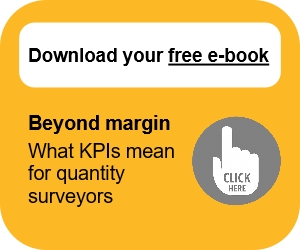Project benchmarking
See also: Benchmarking as business tool.
Benchmarking is a process by which the estimated performance (often cost) of a project is compared to other similar projects. This can highlight areas of design that are not offering good value for money and can help in the assessment of tenders from suppliers and contractors.
Benchmarking is increasingly being carried out on public projects, where the government has access to large amounts of cost data for similar projects. For example, when analysis of the recent schools programme was carried out, it was found that it '... exposed variations in costs that could not be justified by project differences' (ref. Cabinet Office: Government Construction Strategy, May 2011).
It is now proposed that cost benchmarking should be carried out across all government capital programmes to create baselines for a cost/value-led approach to procurement.
In the private sector, comparable cost information may not be so readily available. However, large organisations may have access to in-house cost information, and some cost information is published. Comparative information can also be purchased from sources such as the Building Cost Information Service (BCIS). See BCIS Online for a description of the tender price and duration information available.
It is important, however, that benchmarking does not simply consider construction costs, as these are only a small proportion of whole-life costs, and setting a low benchmark for construction could result in higher operating, maintenance and refurbishment costs throughout the life of the building.
There is now an increasing amount of data available about energy use, sustainability and whole-life costs such as:
- CarbonBuzz, an on-line service that allows architects and engineers to share project forecasts and energy use anonymously.
- Bench iT, a service for quantity surveyors to benchmark KPI's
- The Carbon Trust Energy Benchmarking
- The Chartered Institute of Building Services Engineers.
- Building Research Establishment Environmental Assessment Method (BREEAM).
- Closing the Loop – Benchmarks for Sustainable Buildings (RIBA).
It is important also to consider both quality and time, as the lowest cost option may not always offer the best value for the client or deliver a completed project within the required timeframe.
[edit] Related articles on Designing Buildings
- Bench iT
- Benchmark.
- Benchmarking as business tool.
- Best practice.
- Business case.
- Cross estimating method.
- Design review.
- Design quality.
- Earned value analysis.
- Estimate.
- Health performance indicators in the built environment.
- Key performance indicators.
- Pareto analysis.
- Project performance management.
- Public sector comparator.
[edit] External references
- Government construction strategy, Page 11.
Featured articles and news
Spring Statement 2025 with reactions from industry
Confirming previously announced funding, and welfare changes amid adjusted growth forecast.
Scottish Government responds to Grenfell report
As fund for unsafe cladding assessments is launched.
CLC and BSR process map for HRB approvals
One of the initial outputs of their weekly BSR meetings.
Architects Academy at an insulation manufacturing facility
Programme of technical engagement for aspiring designers.
Building Safety Levy technical consultation response
Details of the planned levy now due in 2026.
Great British Energy install solar on school and NHS sites
200 schools and 200 NHS sites to get solar systems, as first project of the newly formed government initiative.
600 million for 60,000 more skilled construction workers
Announced by Treasury ahead of the Spring Statement.
The restoration of the novelist’s birthplace in Eastwood.
Life Critical Fire Safety External Wall System LCFS EWS
Breaking down what is meant by this now often used term.
PAC report on the Remediation of Dangerous Cladding
Recommendations on workforce, transparency, support, insurance, funding, fraud and mismanagement.
New towns, expanded settlements and housing delivery
Modular inquiry asks if new towns and expanded settlements are an effective means of delivering housing.
Building Engineering Business Survey Q1 2025
Survey shows growth remains flat as skill shortages and volatile pricing persist.
Construction contract awards remain buoyant
Infrastructure up but residential struggles.
Warm Homes Plan and existing energy bill support policies
Breaking down what existing policies are and what they do.
A dynamic brand built for impact stitched into BSRIA’s building fabric.























Comments
To start a discussion about this article, click 'Add a comment' above and add your thoughts to this discussion page.